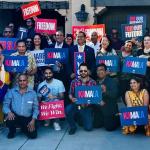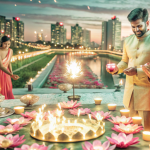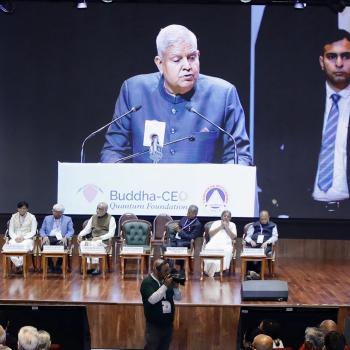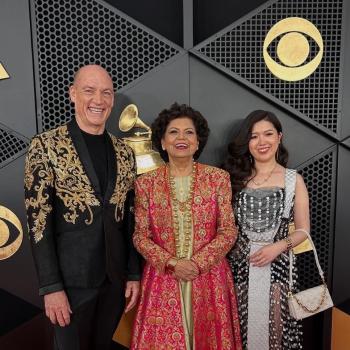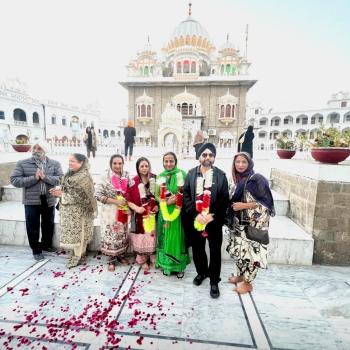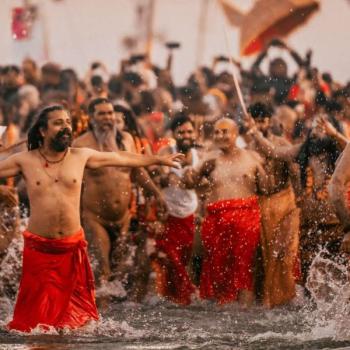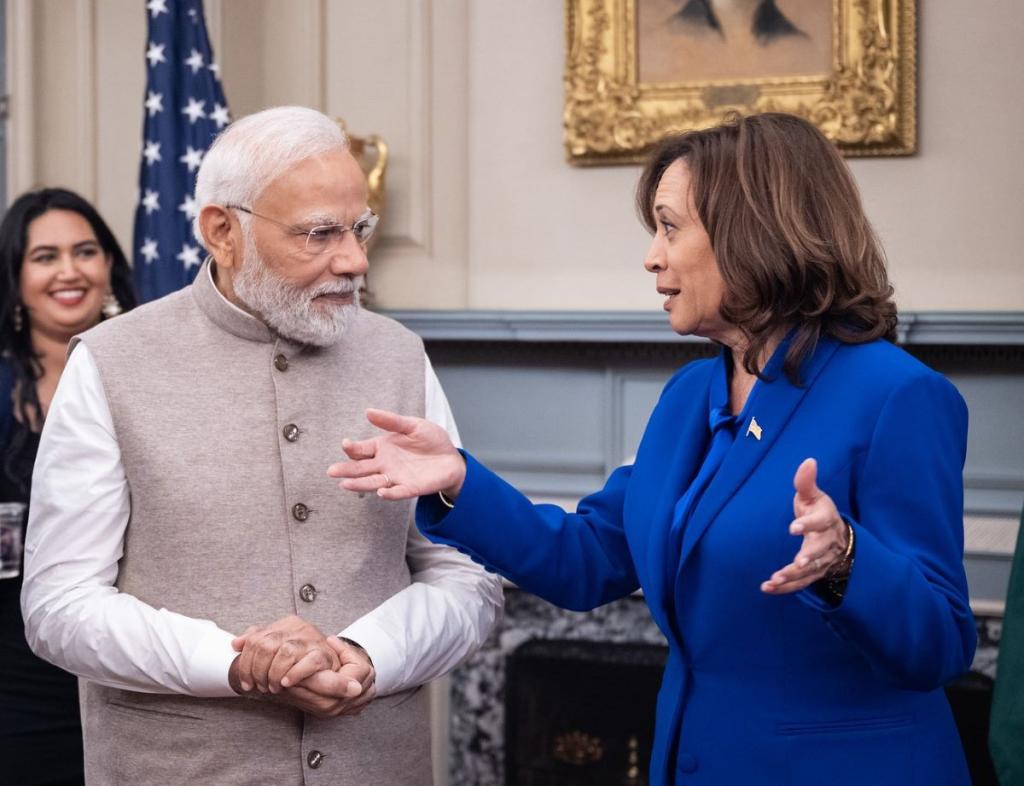
At the CNN Presidential Town Hall on October 23, Vice President Kamala Harris said she prays every day. Yes, we know she was raised Baptist – the faith of her father, Jamaican American economist Donald J. Harris. But her mother was Shyamala Gopalan, a Hindu immigrant from India, belonging to the highest Brahmin caste – Iyengar.
In a Christian-majority country, where Hindus or Indians account for just 1% of the voting population, Kamala Harris finds it prudent to not highlight her Indian heritage. But neither does the Democratic nominee for President in 2024 hide it in a bushel.
Last year, Kamala spoke of her deep personal connection with India when she hosted a state luncheon in DC for the visiting Indian Prime Minister Narendra Modi. She stated that she imbibed the ideas of equality, freedom and democracy from her grandfather, P.V. Gopalan, with whom she went on long walks during her visits to Chennai in southern India. “It is these lessons I learned at a very young age that first inspired my interest in public service,” she added.
India is the world’s oldest continuous living civilization that has been forged primarily by Hinduism. Kamala Harris has that heritage in her genes. So, it is relevant to look at the essence of Hinduism and its values that may imbue her thought process as President if elected.
Shyamala Gopalan sent her daughters, Kamala and Maya, to church while also instilling in them a reverence for Hindu temples. Through her mother, Kamala would learn about Hindu leaders, attending Hindu ceremonies in the US and India. Even her name, Kamala, literally meaning lotus is closely associated with Sri Lakshmi, the goddess of auspiciousness and wealth.
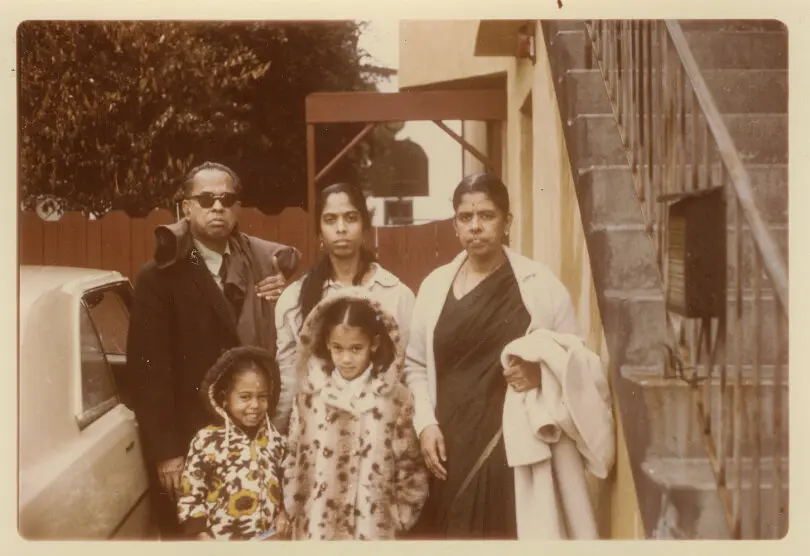
Pluralistic worldview
A biracial woman respecting two faiths would not have been conflicted given that a central tenet of Hinduism is: Ekam sat vipraha bahuda vadanti (There is but one Truth, the wise call it by different names). Mahatma Gandhi, though proud of his Hindu faith, famously incorporated multi-faith prayers in his ashram routine.
It so happens that Kamala Harris ended up marrying Doug Emhoff, a Jew, never changed her name, and is comfortable with diversity at home, which arises from the pluralism deeply rooted in Hinduism.
“One of the things that distinguishes the Hindu tradition is its ability to hold multiplicities,” the Rev. Abhi Janamanchi, senior minister at Cedar Lane Unitarian Universalists in Bethesda, Maryland, told Religion News Service when talking about Kamala Harris. “The Hindu way of being in the world is both, not either-or.”
Indeed, Hinduism revels in thousands of gods and goddesses. Its multi-splendored spectrum has monism on one end and idol worship on the other, with numerous sects, subsects and lineages and traditions in between. The materialistic Charvaka philosophy can co-exist here with Advaita Vedanta, which considers the world as mithya, or illusory.
In an increasingly multicultural and multi-polar world, flattened by jet travel and technology, the US President can do with a pluralistic mind-set.
The world as one family
Besides pluralism, Hindu American Foundation (HAF), an advocacy organization based in Washington DC, considers oneness of existence as a foundational concept of Hinduism, writing on its website: “All beings, from the smallest organism to man, are considered manifestations of the Divine or reflections of the Divine’s qualities, depending upon the school of thought. Because of this shared divinity, Hinduism views the universe as a family or, in Sanskrit, Vasudhaiva Kutumbakam.”
This oft-quoted Hindu verse invokes universal kinship and well-being of all:
Om sarve bhavantu sukhinah / Sarve santu niraamayaah / Sarve bhadraani pashyantu / Maa kaschid dukhbhaag bhavet.
(May all beings be happy. May all be healthy. May all see what is auspicious / May none in the world suffer.)
Acting on such lofty thought, the Leader of the World can generate some goodwill across the globe.
HAF also quotes an ancient hymn to say that Hinduism advanced the concept of equal worth of all mankind. But the so-called caste system in the Middle Ages did discriminate against low castes and communities. Then came the reformist Sikh movement. The 10th Sikh preceptor, Guru Gobind Singh pronounced: Manas ki jat sabhe eke pahchanbo (recognize all of mankind as a single caste of humanity). Founder of Sikhism, Guru Nanak (1469-1539), even promoted gender equality: “From her kings are born…. Without woman, there would be no one at all”.
Gender and racial equality are a work in progress in the US as in many parts of the world.
Freedom and democracy
Being a Hindu can mean so many things, including being an agnostic or atheist, for it is more a way of life that does not straitjacket you. Sanatana Dharma has now come to be known as Hinduism but is actually shorn of any ‘ism’. You can do puja and practice other rituals or skip them, go to temple or not, be a vegetarian or not, you can still call yourself a good Hindu, devout or not. How democratic is that!
In the absence of a central treatise or holy book, the fluidity and flexibility of Hinduism has allowed itself to segue into the age of science, where concepts of hell and heaven fell by the wayside. India today accepts the science of climate change, a burning issue of our time and a cause celebre of Democrats.
To Anderson Cooper’s question at the CNN Town Hall about praying, Kamala Harris introduced a universal definition of faith. She said, “I do pray every day, sometimes twice a day. I was raised to believe in a loving God, to believe that your faith is a verb—you live your faith.
“The way that one should do that is… think about how you can serve in a way that is uplifting other people, that is about caring for other people,” she continued. “That guides a lot of lot of how I think about my work and what is important.”
Founder and Editor of ALotusInTheMud.com, Parveen Chopra is a seasoned media professional specializing in wellness, personal growth, and spirituality. More about him here.


